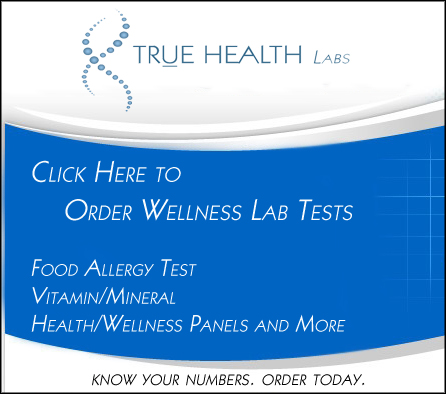If you have read "It Starts With Food" there is about a 1/4 page written about vegans being paleo. If you read most of the blogs out there you'll find gobs of reasons why you shouldn't be vegan. There's all of the "Why I stopped being vegan" and the "Veganism ruined my life" posts. And in most gyms you're going to be told that you need meat to survive. But the truth, as I have always taught, is that there is a personal nutritional truth you have to find. Not everyone should be vegan. Not everyone should be a carnivore. We have a uniqueness in each of us that makes it important to listen to how your body reacts to certain foods.
So let's talk about some of the myths, and some of what we know.
You Can't Get Enough Protein
The truth is that the recommended intake for protein is only 42 grams. I have seen my husband take in 25 grams or more in a morning smoothie just with water and a scoop of protein. The average vegan gets another 20 - 30 grams of protein on top of that without even trying. Cardiovascular disease is high in our country, and the researchers are looking at alternative plant-based proteins to help patients dealing with this risk. Dulse is the highest in protein of the popular sea vegetables. Red dulse is considered a superfood because of its high iodine and potassium content, plus a long list of micro-nutrients and phytochemicals. Overall seaweed contains a number of heart healthy components. The secret for vegans is that we don't store up our protein like we would the carbs and fats that we eat. So getting those protein rich vegetables is essential throughout the day. Vegetables, nuts and seeds, and even my Flax + Protein milk have more than enough protein to keep me going throughout the day. You can make or purchase (in some areas) soy-free tofu as well.
Vegan Proteins Aren't Enough To Build Muscles
Tell that to Carl Lewis, Bode Miller or Hannah Teter!! Vegan proteins not only will help with the increased oxidation and inflammation that an athlete deals with post workout or competition, but they are getting all of the fiber that carries away the waste byproducts of muscle production. Avocado, nuts, seeds, algae and even dark chocolate are all full of healthy fats that help support the production of testosterone. Testosterone increases muscle mass by increasing muscle protein synthesis. And important evidence suggests that the ingestion of the plant-based proteins in wheat can result in a lower muscle protein synthetic response when compared with several animal-based proteins.
It's important to note that amino acids used in bodybuilding are often converted from wheat, and in fact we're seeing hydrolyzed wheat protein labeled under the name “glutamine" or "glutamine peptides" in protein shakes. Research has shown that men whose diets are rich in healthy fats have significantly higher testosterone levels, not that men with higher protein intake have higher testosterone levels. So the key in my opinion for vegan athletes is to get that combined fat + plant proteins together.
If you look at a study in the Journal of Clinical Endocrinology & Metabolism where they had the men eat more than 100 grams of fat per day for two weeks, these men had less of a hormone that binds to testosterone, called sex-hormone-binding globulin. What that means is they had higher levels of free testosterone, which is what matters with building muscles. Fats, Zinc and Vitamin D with your broccoli will do your vegan muscles good!
A Vegan Diet Will Harm Your Health
For some people with underlying autoimmune issues there are foods that they need to stay away from. This has very little to do with being vegan and more to do with eliminating foods that trigger inflammation in people with autoimmune disease. Those include nightshades, eggs, dairy, nuts and seeds as starters and the avoidance of lectin-containing foods. If you are eating veggie rice and lentil taco bowl with gobs of pico de gallo you're going to be doing less for healing than you think if you are in that group. Many of us need to eliminate the gut-irritating foods from our diet which is why we turned to paleo in the first place. Avoiding nightshades completely, and most nuts and seeds, as well as seed-based spices is going to be a must do for you to figure your gut out. I also recommend that you try to stay away from beans, guar gum and xylitol for the first few months and see how you do if you reintroduce them later. Obvious just about all of the AIP protocols and images you are going to find are going to recommend lots of meat. You'll have to sort out and adjust where you can. Most recommendations say that you can have some DGL (which is supposed to help with leaky gut support), apple cider vinegar, balsamic vinegar, coconut aminos and coconut water in moderation. You could incorporate sacha inchi and tigernut as good protein/omega sources that are okay on the AIP protocol and not actually nuts. I love my tigernut flour. The tigernut is a little ancient tuber.
For some people with underlying autoimmune issues there are foods that they need to stay away from. This has very little to do with being vegan and more to do with eliminating foods that trigger inflammation in people with autoimmune disease. Those include nightshades, eggs, dairy, nuts and seeds as starters and the avoidance of lectin-containing foods. If you are eating veggie rice and lentil taco bowl with gobs of pico de gallo you're going to be doing less for healing than you think if you are in that group. Many of us need to eliminate the gut-irritating foods from our diet which is why we turned to paleo in the first place. Avoiding nightshades completely, and most nuts and seeds, as well as seed-based spices is going to be a must do for you to figure your gut out. I also recommend that you try to stay away from beans, guar gum and xylitol for the first few months and see how you do if you reintroduce them later. Obvious just about all of the AIP protocols and images you are going to find are going to recommend lots of meat. You'll have to sort out and adjust where you can. Most recommendations say that you can have some DGL (which is supposed to help with leaky gut support), apple cider vinegar, balsamic vinegar, coconut aminos and coconut water in moderation. You could incorporate sacha inchi and tigernut as good protein/omega sources that are okay on the AIP protocol and not actually nuts. I love my tigernut flour. The tigernut is a little ancient tuber.
Unfortunately I have read that algae (chlorella, spirulina), wheat grass (contains wheat germ agglutinin), barley grass, brown rice protein, pea protein, hemp protein, licorice root (except DGL), aloe, slippery elm, chia, flax, lemon balm (tea is probably okay but avoid in supplement form), commercial egg replacers (although I am not sure on the Follow Your Heart VeganEggs) and some adaptogenic supplements (ashwagandha is a nightshade) are not okay for those with autoimmune disorders. So you can see where veganism and the paleo lifestyle could be complicated for some people. Again that comes down to finding out that personal nutritional truth for you and going with it despite what anyone else says.


.png)






























0 comments:
Post a Comment